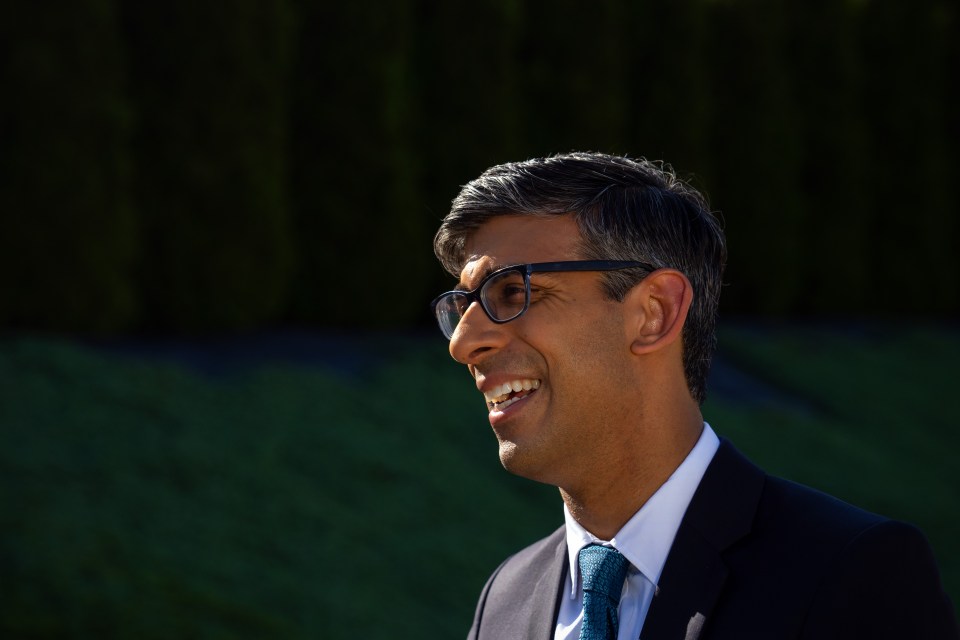We need a good dose of optimism in our politics – especially about climate

Voters want more optimism in our politics – especially when it comes to climate – even if it can feel un-British. Younger voters especially are much more optimistic than our politicians, writes Adam Hawksbee
“Is It Wrong to Bring a Child Into Our Warming World?” read a letter to the New York Times last week. Doom mongering is, unfortunately, what we’ve come to expect from the world’s leading hand wringing newspaper.
But over the weekend, an old friend asked a similar version of the same question. “I just don’t know,” he said, “if we should have kids when things with the environment are so bad at the moment, and seem to be getting worse?” He is eminently sensible – a homeowner in a Nottingham suburb, public sector professional, who should shortly shuffle into “centrist dad” territory. Yet his fears about global warming are stopping him in his tracks.
This wave of pessimism is particularly acute when it comes to the climate. The environment almost always features in the top three concerns of the UK public alongside the cost of living and the NHS. That’s no bad thing – the government needs to be doing more to tackle climate change and improve our energy security. But a staggering one in three young people say they feel “overwhelmed” or “scared” about climate change. Every report of “eco-anxiety” suggests that a rational concern is turning into something more pernicious.
And such gloom is not confined to the UK. While we look fawningly at President Biden’s climate-focussed Inflation Reduction Act, two thirds of US citizens think their economy will be weaker in 2050.
Pessimism is a real problem. It means we make decisions like not having children when the UK’s fertility crisis means we are creeping towards a demographic trap. It can stop us thinking for the long term, meaning we don’t save for retirement or invest in nascent technologies – think of Nick Clegg’s dismissal of nuclear energy a decade ago.
Pessimism also opens us up to specious arguments from political extremes. Just Stop Oil’s seductively simplistic calls to halt UK domestic oil production would ultimately leave us more reliant on foreign states, just as OPEC has decided to cut production to raise the oil price. And although the Truss mini-budget was wrapped up in boosterish language it had an underlying doomster logic: things can’t get much worse, why don’t we bet the house?
There is a glimmer of hope. Recent polling from Onward found that Millennials – those between 25 and 40 year olds – are uniquely optimistic. Just over half think the next generation will have better opportunities – more than the slightly older Gen X at 35 per cent and the even older Baby Boomers at 44 per cent. Although Millennials are frustrated by a lack of housing, high costs of childcare, and eye watering marginal tax rates, they still believe that things can get better – and the environment is central to their politics.
What does that mean for politicians? Given the challenges we face, they can’t get away with pretending everything is fine. Voters want leaders who recognise the scale of the net zero transition and are pragmatic when it comes to the trade-offs involved.
But voters also need some hope. The climate crisis is an era-defining challenge – but if we play it right, we can steadily decarbonise while creating thousands of jobs. Of course children will be born into a world with new challenges – but it’ll also be at a moment in history with the highest levels of prosperity, longest life expectancies, and lowest levels of discrimination. Optimism doesn’t mean lying to voters or obscuring problems, it means setting out a credible path to something better.
In trying to motivate the public to support net zero, we need a dash of the sunlit uplands. Motivating through fear or shame won’t make people change their behaviour and too many are ending up hopeless. Every warning about carbon-emitting combustion engines should come with a nod to cleaner, fresher air. Each pledge to accelerate retrofitting needs to highlight the promise of warmer homes that are cheaper to heat.
The problem with this optimism is it can feel profoundly un-British. Look at the backlash Jeremy Hunt received when he warned that a doom loop on the economy risks becoming self-fulfilling. We are inherently suspicious of anyone a little too sunny, particularly if they’re wearing a rosette. So maybe it’s fitting to remember an instructive quote from an American very different from the New York Times’ nervous letter writer. When challenged on his youthful exuberance by a journalist, John F Kennedy rebutted firmly: “I am an idealist without illusions.”